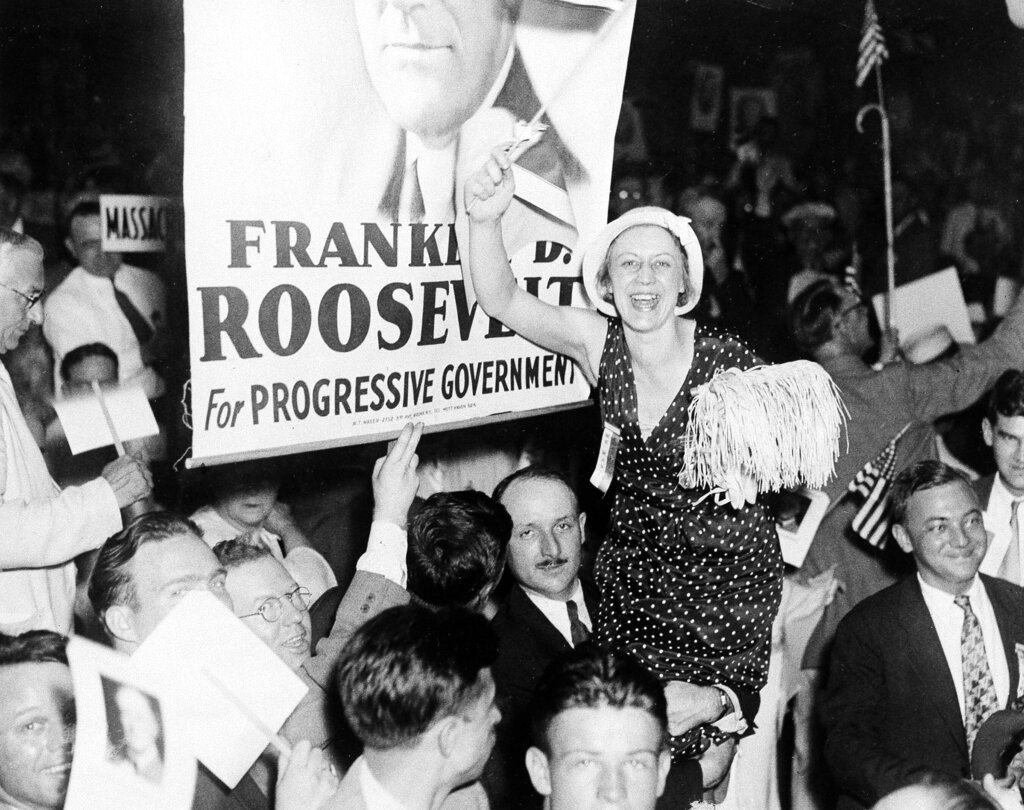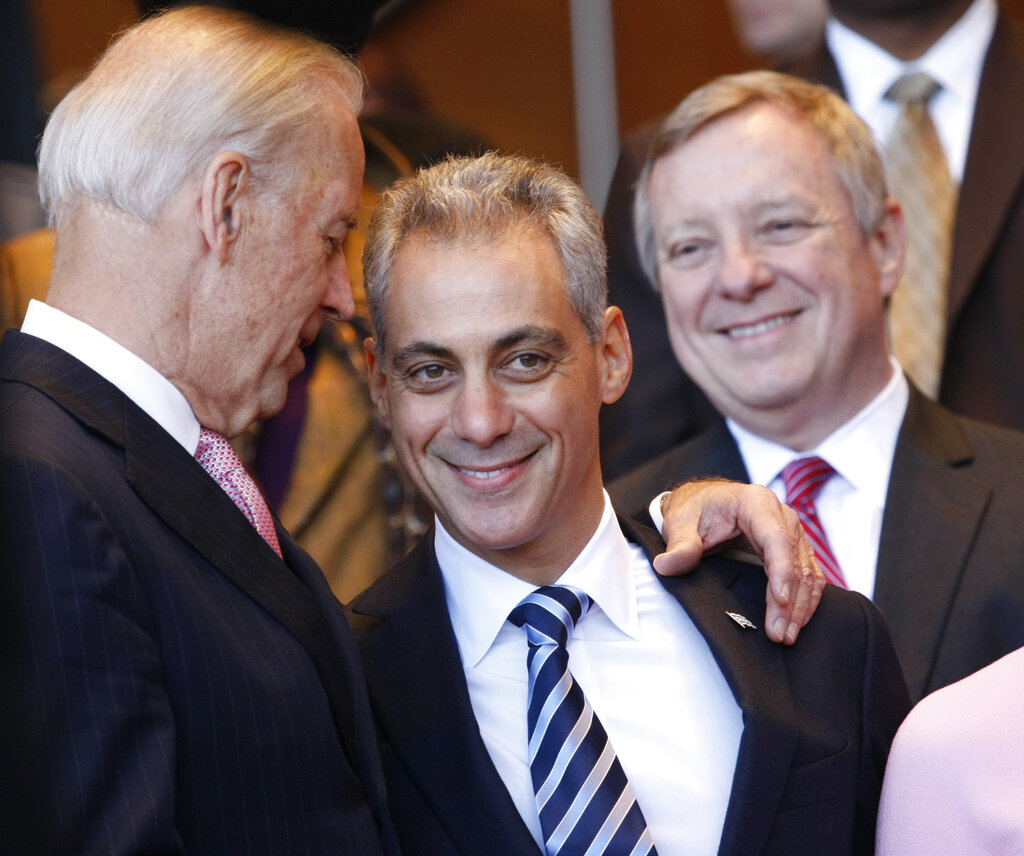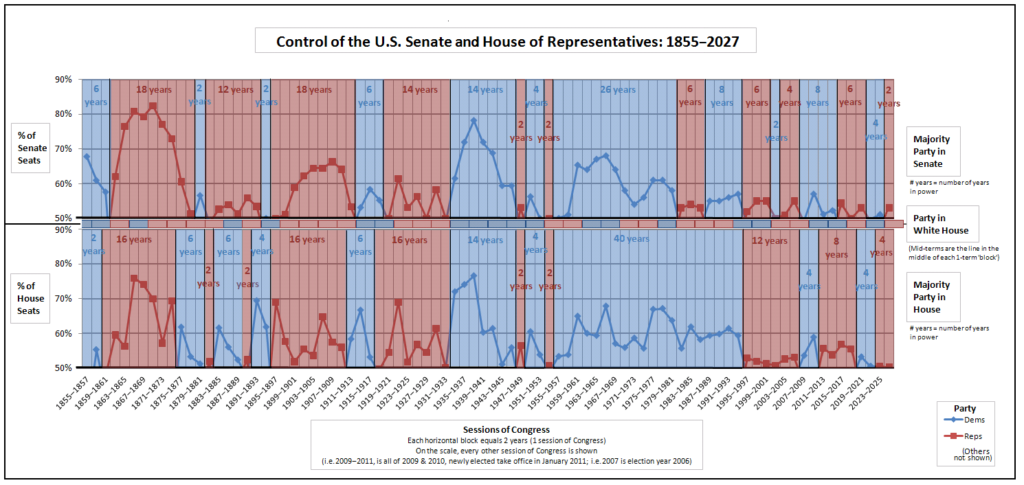
Nearly five months after a barrage of post-election op-eds featuring the obligatory line, “Democrats need to do some soul-searching,” the party’s favorability is at an all-time low. Recent polls from NBC News and CNN reported the Democratic Party’s approval rating to be 27 and 29 percent, respectively. The pollsters haven’t found lower numbers since 1990 and 1992. And amid cross-ideological outrage at party leadership — in particular Senate Minority Leader Chuck Schumer — the search for the party’s “soul” is clearly still ongoing.
Some commentators and party elites are putting forth Rahm Emanuel as an answer to the Democrats’ identity crisis. The former congressman, party insider, Chief of Staff to President Obama, Mayor of Chicago, and Ambassador to Japan would face a steep climb to the presidency, let alone the Democratic nomination. His lack of name recognition outside of Washington political circles and Chicago would be detrimental, especially considering the comparatively large national profiles of other Democrats eyeing “centrist” runs for president.
Even so, a recent Politico column by Jonathan Martin speculates that Emanuel’s recent media blitz indicates his desire to re-enter elective politics. In the past month, Emanuel has unveiled his new anti-culture-war focus, telling one audience, “I am done with the discussion of locker rooms, I am done with the discussion of bathrooms, and we better start having a conversation about the classroom.” On Bill Maher’s show he even commented, “In seventh grade, if I had known I could’ve said the word ‘they’ and gotten in the girls’ bathroom, I would’ve done it.”
Races for Illinois governor, U.S. Senate, and Chicago mayor will take place before the 2028 election, but Emanuel’s eyes seem to be set on the presidency. While he dodged questions about his plans, his longtime ally David Axelrod commented that “if you run a smart, spirited race for president you can elevate yourself,” but you “win or lose” when running for any other office. Emanuel, who ended his mayoral re-election campaign when faced with a near-certain loss, seems unlikely to run for anything besides the nation’s highest office.
The Emanuel-backers are not entirely wrong about their preferred candidate’s potential — he has moxie and can create “a snappy sound bite,” as the Politico column claims. Emanuel’s political communication skills are certainly strong, but that does not make him a good candidate or politician.
If Emanuel could beat the odds and secure the Democratic nomination for 2028, his campaign would immediately face challenges in turning out the party’s base. From his coverup of the police murder of Laquan McDonald while mayor, to his attempts to pull the Obama administration even further to the center as White House Chief of Staff, Emanuel would surely face harsh scrutiny from the traditional Democratic base — and likely not just progressives.
In the unlikely scenario in which Emanuel succeeds in becoming president, Democrats’ political woes would not magically end. His unambitious and loosely-defined policy goals would lead to minimal accomplishments while in office, squandering the true advantage of being an incumbent: the ability to cause material change.

The hypothetical Emanuel administration would not significantly differ from that of any other centrist candidate, or even recent Democratic administrations. Joe Biden won the presidency in 2020 because his opponent was weak, not because Biden was a uniquely compelling candidate — by the time of the election, Trump was an unpopular incumbent mismanaging both a pandemic and social unrest. While in office, Biden did oversee significant progressive policy change, but his successes only made a minuscule dent in America’s needs.
Kamala Harris — who attached herself to the outgoing administration (both voluntarily and by nature of being vice president) — may have had a radically different fate in 2024 if the Democrats had big, tangible achievements under Biden. The administration could have aggressively pushed for redistributing the tax burden to the wealthy or large-scale expansion of social welfare programs but instead clung to a “moderate” form of politics.
Unless the party genuinely fights for a progressive, pro-worker policy agenda while in office, its re-election odds will hinge on weak Republican candidates and a favorable business cycle. This Democratic “strategy” is not conducive to building a long-lasting political coalition — how can the party expect to hold power for an extended period of time if its electoral success is at the whims of outside factors? Even good messengers like Emanuel cannot escape the unremarkable policy accomplishments of their party.
The party’s long-term strategy is entirely nonexistent. Progressives should instead be striving to recreate the New Deal coalition, adjusted for today’s political economy. Franklin Roosevelt’s administration delivered material improvements for American workers and was rewarded with sustained political support. Not only did Roosevelt win the presidency four times from 1932 to 1944, the Democratic Party almost always controlled Congress until the 1994 Republican Revolution. For the party to return to political dominance, it must re-establish itself as fighting for working people through an aggressive policy agenda.

A renewed New Deal coalition would not put progressive Democrats in power forever, but it could have the effect of shifting the entire nation’s political culture to the left. Roosevelt’s popularity forced Republicans to moderate and generally support his policies that carried broad support — his 1936 opponent Alf Landon even supported much of the New Deal. Still today, politicians from both parties at least outwardly support Social Security. Somewhat similarly, Ronald Reagan’s popularity forced Democrats to adopt neoliberalism (all while Republicans beat historical trends to control the Senate).
The 2026 midterm elections offer a critical opportunity for progressives to take control of the party’s congressional caucus, opening the door for serious policy change under future Democratic administrations. Contrary to what centrist politicians like Emanuel may have you believe, this cannot be accomplished solely through messaging changes as policy and messaging are inherently linked.
America could be on the verge of massive political change — just like when Roosevelt’s landslide 1932 win ended decades of laissez-faire Republican governance. Alternatively, Democrats can further cement themselves as a party of centrists, all while the country’s politics becomes ever-more reactionary.
The Zeitgeist aims to publish ideas worth discussing. The views presented are solely those of the writer and do not necessarily reflect the views of the editorial board.



